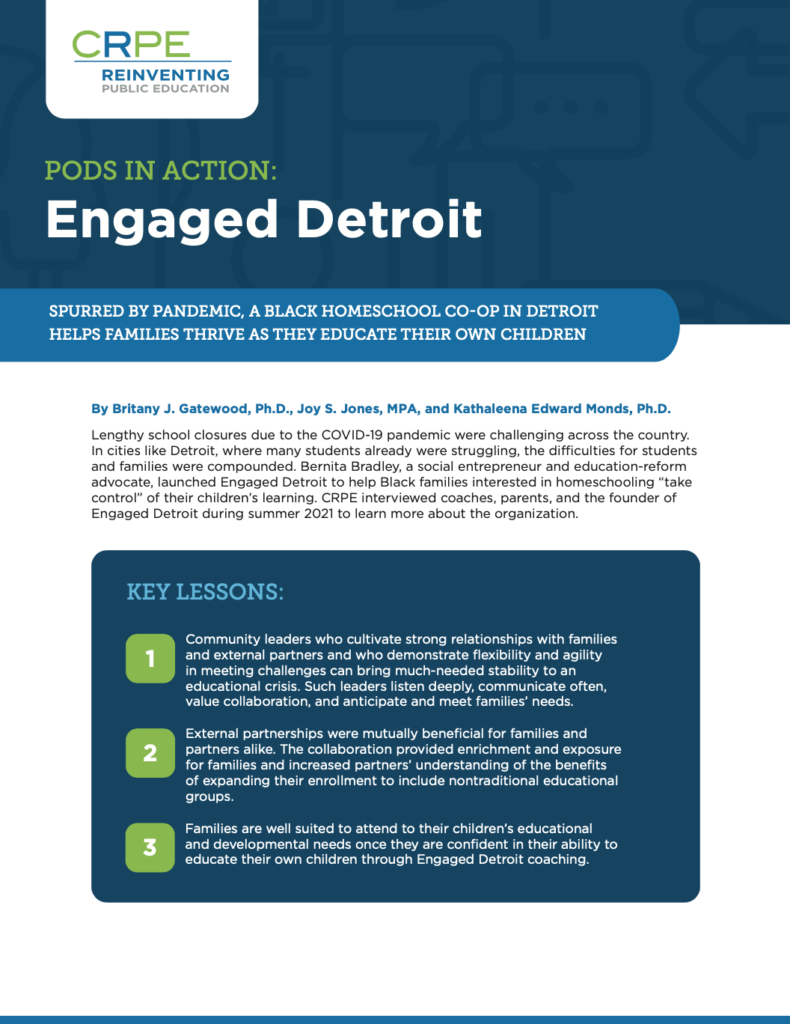Case Study: Spurred by pandemic, a Black homeschool co-op in Detroit helps families thrive as they educate their own children
Lengthy school closures due to the COVID-19 pandemic were challenging across the country. In cities like Detroit, where many students already were struggling, the difficulties for students and families were compounded. Bernita Bradley, a social entrepreneur and education-reform advocate, launched Engaged Detroit to help Black families interested in homeschooling “take control” of their children’s learning. CRPE interviewed coaches, parents, and the founder of Engaged Detroit during summer 2021 to learn more about the organization.
Key Lessons
- Community leaders who cultivate strong relationships with families and external partners and who demonstrate flexibility and agility in meeting challenges can bring much-needed stability to an educational crisis. Such leaders listen deeply, communicate often, value collaboration, and anticipate and meet families’ needs.
- External partnerships were mutually beneficial for families and partners alike. The collaboration provided enrichment and exposure for families and increased partners’ understanding of the benefits of expanding their enrollment to include nontraditional educational groups.
- Families are well suited to attend to their children’s educational and developmental needs once they are confident in their ability to educate their own children through Engaged Detroit coaching.
- A community of like-minded individuals, with cultural values and mores in common, provides a foundation for adults to feel supported and empowered to envision and achieve goals that may initially seem unattainable.
- External sources of funding are crucial to ensure that all families who want to homeschool their kids have access to the resources they need. That includes technology, curriculum, supplies, and enriching experiences, as well as support from knowledgeable members of their communities. This is a missing piece in our systems as they currently exist.




